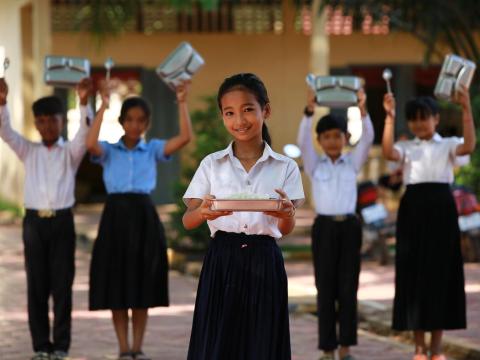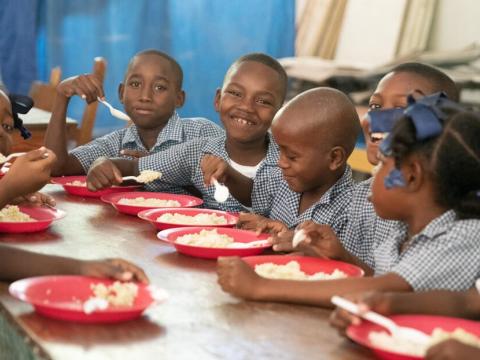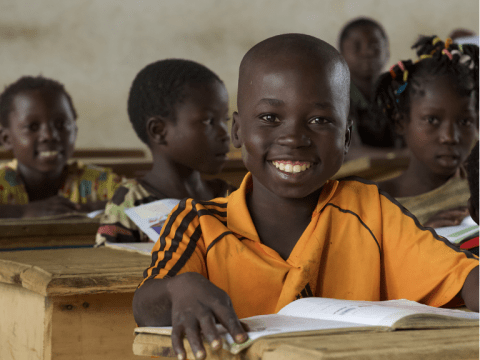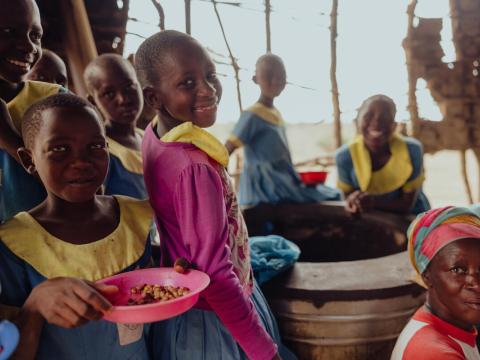
The Silent Heroes of COP28: The Power of School Meals in Climate Action
Amanda Rives Argeñal and Charlotte Masiello-Riome carry the CSO call to action on School Meals to this year’s COP28 in Dubai and beyond.
In the global symphony of combating climate change, the United Nations Climate Change Conference emerges as a crucial stage for discussions on policies, industries, and technological advancements. Yet, amidst these talks, a topic of immense relevance often lingers in the shadows: school meals.
Extending far beyond mere sustenance, school meals are the unsung heroes fortifying communities against climate-induced challenges. Programming that works across the Humanitarian Development Peace (HDP) nexus, school meals support girls and boys in regions experiencing conflict, climate disasters, as well as stable contexts. It is through this lens that we recognise the profound role of school meals in not only addressing hunger but in proactively building resilience against the multifaceted challenges posed by a rapidly changing climate.

The project has collaborated with the District Office of Education, Youth and Sport (DoEYS), schools, and local authorities to implement both the School Meal Program (SMP) and Home-Grown School Feeding Hybrid (HGSF-H) models.
The World Food Programme (WFP) reports a staggering return on investment, with every USD 1 invested in school meals yielding up to US $9 in economic returns. These meals, provided at schools worldwide, serve as a critical source of nutrition for millions of children, impacting individual health and fostering the long-term prosperity of communities and nations.
While nutrition is paramount, embedding climate resilience within school meal programmes acknowledges the dynamic challenges posed by a changing climate. This approach guarantees that children receive sustainable and resilient nutrition, taking into account the broader impact on the environment and local communities, safeguarding their well-being in the long run.
Research by the School Meals Coalition highlights the importance of government policy changes in creating nutritious, eco-friendly school meals sourced from sustainable agriculture. Their findings stress the need for systemic changes and collaboration across the school food system to achieve healthier, environmentally friendly meals. The 'fork-to-farm' approach, starting from the meal and working backwards to the farmer and ensuring local procurement practices, is proposed to drive innovation and sustainability throughout the entire food system and reduce food waste. The World Food Programme has launched its own 10-year school feeding strategy (2020– 2030), which calls for more research, interventions and design to foster a climate change-responsive approach to school feeding.
Community and Regional Impact
Discussions on climate resilience impact not just individual programs but also have a wider-reaching effect on communities and regions. These resilient school meal models serve to influence broader community sustainable food systems practices by local farmers and businesses alike, thus contributing to regional resilience.
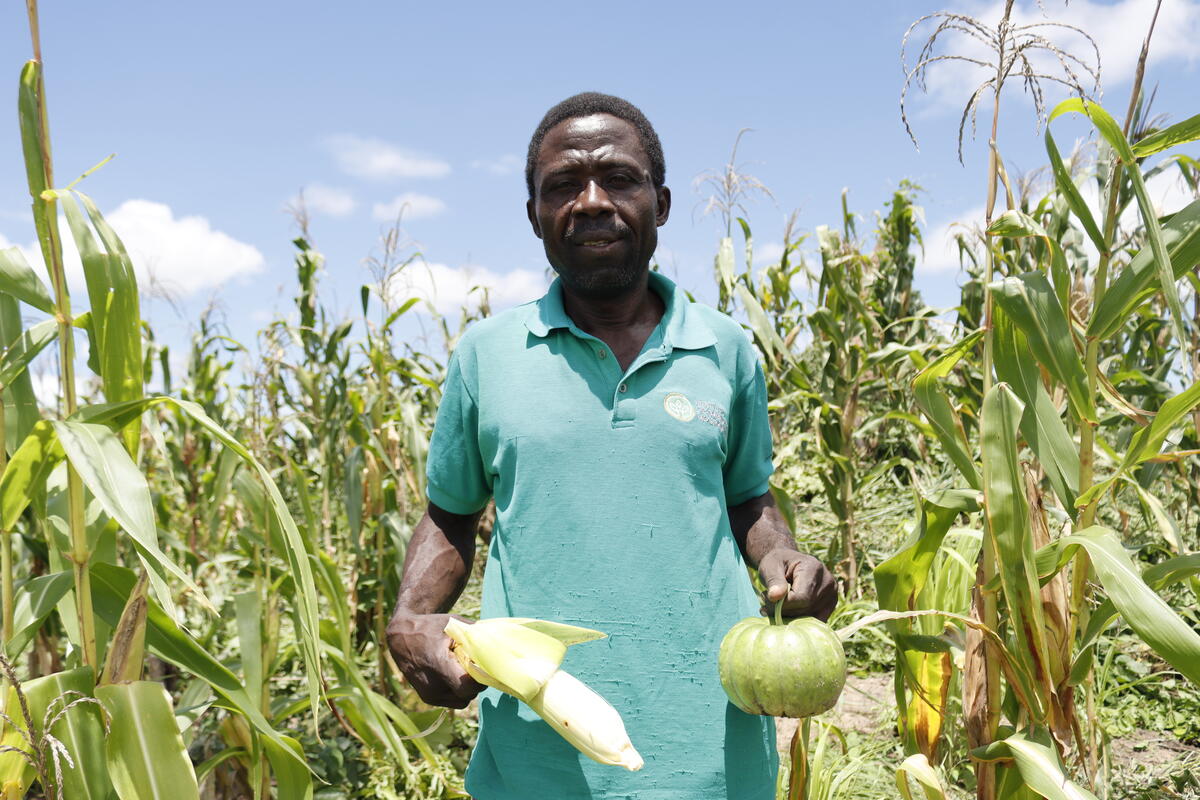
Examples of World Vision’s work in supporting governments and communities in building climate-resilient School Meal Programmes
- Supporting smallholder farmers' production cooperatives to ensure they can supply requirements from the schools
Rwanda, Mozambique, Angola, DRC, Burundi - Providing garden support packages to schools for establishing and maintaining school gardens.
Rwanda, Mozambique, South Sudan, Haiti, The Democratic Republic of the Congo - Providing practical nutrition education to promote healthy diets and lifestyles, including how to grow micronutrient-rich vegetables and fruits, as well as practical experience in food production and natural resource management through school health and nutrition clubs.
Angola, Burundi, Cambodia, Colombia, The Democratic Republic of the Congo, Haiti, Jordan, Mozambique, Rwanda, South Sudan, Sudan, Venezuela - Collaborating with the Environmental Management Authorities in protecting the environment in and around the schools and building fuel-efficient stoves as strategies to protect the environment.
Angola, Burundi, Cambodia, Colombia, The Democratic Republic of the Congo, Haiti, Jordan, Mozambique, Rwanda, South Sudan, Sudan, Venezuela
Incorporating commitments around school meals at COP28 is not just about relieving hunger; it is about strengthening communities against the impacts of climate change. It's about championing sustainable, local food sourcing, reducing waste, and investing in the health and education of our children and their families. World Vision and the many signatories to the Civil Society Call to Action are committed to supporting governments in implementing school meal programmes through collective advocacy, technical assistance, capacity sharing, and fostering partnerships to ensure that school meals are foolproof and future-proof.
As we strive to build a more resilient, sustainable world, let's recognise the fundamental role school meals play in addressing hunger, improving nutrition, and fortifying communities against the challenges of a changing climate. It's time to give this essential component the attention it deserves in global climate discussions.
Amanda Rives Argeñal is Senior Director, External Engagement and Resource Development in the Disaster Management team at World Vision International.
Charlotte Masiello-Riome is World Vision’s Senior Advisor for Communications and External Engagement at World Vision.
World Vision joined partners of the School Meals Coalition at COP28, held in Dubai 30 November -12 December. Watch some of the coverage. Contact Charlotte to learn more about World Vision’s Climate-Smart School Meals partnerships or arrange any meetings at Charlotte_Masiello-Riome@wvi.org.
Learn more about World Vision at COP28.
------
More about the School Meals Coalition 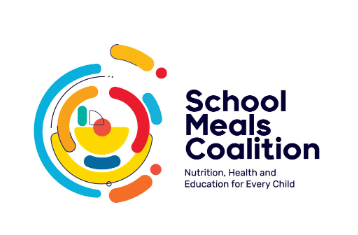
The main goal of the School Meals Coalition is to ensure that, by 2030, every child receives a healthy, nutritious daily meal in school. To achieve this, the member states set out three objectives:
- Restore all national school meal programmes lost to the pandemic by 2023
- Reach the 73 million most vulnerable children who were not reached even prior to the pandemic by 2030
- Improve the quality and efficiency of school health and nutrition programmes globally by 2030
Learn more about the School Meals Coalition.
The School Meals Coalition held two events at COP 28, where together with members and partners showcased how countries are using school meals programmes to drive sustainable food systems transformation and climate action.
Nourishing the Planet, Sustaining Futures: Reimagining School meals for Planetary and Child Health
Date and Time: 8th December, 14:00-15:00 GST
Location: Al-Waha Stage, WCAS Theatre within the Blue Zone |Watch live here
School meals and food systems: Rethinking the consequences for climate, environment, biodiversity, and food sovereignty
Date and Time: 8th December, 16:15 – 17:00 GST
Location: Connect Conference Centre, COP28 Green Zone, EXPO City, Dubai, UAE | Read the interview on The White Paper: Unlocking opportunities of planet-friendly School Meals
